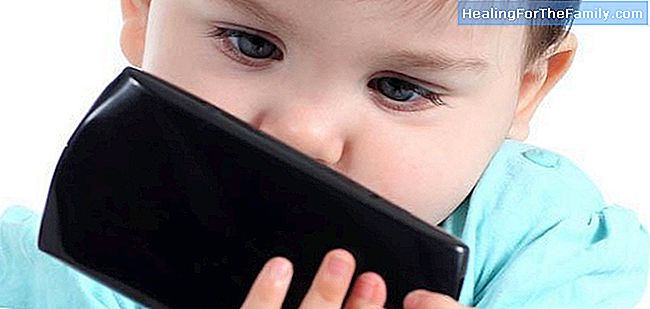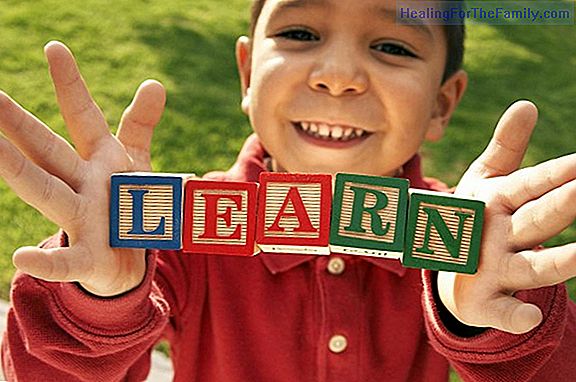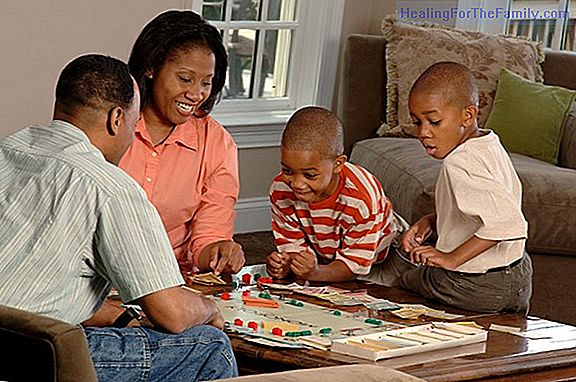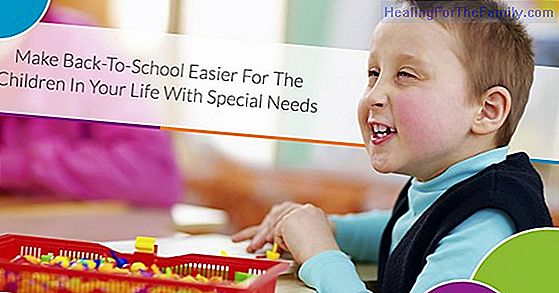10 Reasons to prohibit smartphone for children under 12
Children's access to new technologies seems to have no brakes. Before, the concern was limited to children who stayed too many hours in front of the television, while today there is a great discomfort of parents about the contact that children have, including babies, with smartphones and tablets. Ex
Children's access to new technologies seems to have no brakes. Before, the concern was limited to children who stayed too many hours in front of the television, while today there is a great discomfort of parents about the contact that children have, including babies, with smartphones and tablets. Experts in the field warn about the risk of using these devices in babies and children. Are mobile phones and tablets the new nannies and caregivers of children?
How and how much children can use the smartphone
Months ago, the Japanese Pediatric Association started a campaign to restrict the prolonged use of mobile phones and tablets, suggesting control and more games to parents. Now it is the American Academy of Pediatrics and the Canadian Pediatric Society that reveal 10 reasons why children under 12 should not use these devices without control. They are clear, babies from 0 to 2 years old should not have any contact with technology; those from 3 to 5 years old, must be restricted to one hour / day; from 6 to 18 years the restriction should be 2 hours / day.

Why limit children's access to mobiles or tablets
1- Brain development of children
A brain development caused by excessive exposure to technologies, can accelerate the brain growth of babies between 0 and 2 years old of age, and associated with executive function and attention deficit, cognitive delays, learning problems, increased impulsivity and lack of self-control (tantrums).
2- Delay in child development
Excessive use of technologies may limit movement, and consequently academic performance, literacy, attention and skills.
3- Childhood obesity
The sedentary lifestyle that implies the use of technologies is a problem that is increasing among children. Obesity leads to health problems such as diabetes, vascular and cardiac.
4- Alterations of the child's sleep
Studies reveal that most parents do not supervise the use of technology in their children's rooms, which shows that children have more difficulty falling asleep. Lack of sleep will negatively affect your academic performance.
5- Mental illness
Some studies prove that the excessive use of new technologies is increasing the rates of childhood depression and anxiety, attachment disorders, attention deficit, bipolar disorder, psychosis and other problems of child behavior.
6- Aggressive behavior in childhood
Children's exposure to violent and aggressive content can alter their behavior. Children imitate everything and everyone. So we must monitor the use and navigation of children on mobile phones or tablets.
7- Lack or lack of attention
The excessive use of new technologies can contribute to attention deficit, decrease the concentration and memory of children, thanks to the high speed of its contents.
8- Child addiction
Studies show that one in every 11 children aged 8 to 18 are addicted to new technologies. Every time children use mobile devices, they are separated from their environment, friends and family.
9- Too much radiation
The WHO, World Health Organization classifies cell phones as a risk due to the emission of radiation. Children are more sensitive to these agents and there is a risk of getting diseases such as cancer.
10- Overexposure
The constant and overexposure of children to technology makes them vulnerable, exploitable and exposed to abuse.
In addition, experts agree that being too many hours stuck to the mobile or the tablet is harmful to the development of children. They believe that they generate more passive children and that they do not know how to interact or have physical contact with other people. And although they understand that new technologies are part of their lives, they believe they should not replace reading a book or playtime with siblings and parents.












